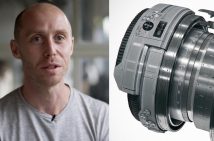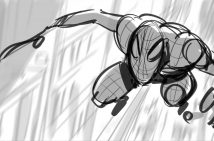Submarine Channel

“All documentaries are fake” – Asif Kapadia talks virtual reality, Diego Maradona and his next project
“All documentaries are fake” – Asif Kapadia talks virtual reality, Diego Maradona and his next project
-
“There is a misconception that somehow documentaries are real. Everything is fake. Everything is constructed”
-
“Senna is an action movie, Amy is a musical, Diego Maradona a gangster film”
-
“There’s no shortage of money out there, there’s a shortage of good ideas”
These are some of the thought-provoking quotes I jotted down during my interview with Asif Kapadia, the Oscar-winning director of Amy, Senna and Diego Maradona.
I reached out to him as he was part of the jury of this year’s edition of Venice VR Expanded, the virtual reality section of the Venice Film Festival, an event that we covered extensively in our Guide to Venice VR 2020.
Kapadia’s documentaries are renowned for skillfully dusting off old archive footage, a modus operandi that, at first glance, sounds diametrically opposed to futuristic virtual reality.
“I started off as one of the most cynical people about VR because I used to think ‘I wear glasses, I’m gonna have headaches, I’m not gonna enjoy it,’” said Kapadia. “But I changed my mind. I think it’s a genuine development in moving pictures. Actually, I’ve been thinking of making an animated film in VR.”
Kapadia is no stranger to experimenting with different forms of visual media. “I come from drama, I made long and short films, I directed TV, I do commercials,…I really enjoy all the different ways of telling a story,” said the director.
With his trilogy on child geniuses and fame (Senna, Amy, Diego Maradona), he demonstrated that even long-forgotten analogic tapes can be turned into cinematic gold if handled properly, an approach that paved the way for a revival of archive footage documentaries, from They Shall Not Grow Old to Apollo 11.
“What I was trying to do was pushing the genre into a new direction by using archive footage in a different way,” commented Kapadia, “Senna for me is like an action movie, Amy is like a musical, Diego Maradona is almost like a gangster film. Documentary filmmaking should have a wider spectrum of genres, like fictional storytelling.”
In Kapadia’s eyes, the line between fiction and non-fiction is much more blurred than one may presume.
“There is more construction that goes into one of my documentaries than in a fiction film,” said the filmmaker, “There is the misconception that somehow documentaries are real. Everything is fake. Everything is constructed. You have to fake everything to make reality. The fact that there’s a camera present will irremediably change the situation.”
However, Kapadia’s documentaries are made of archive footage. The scene is already there, you can’t stage it. In theory, it’s the least constructed form of non-fiction filmmaking.
“You still have ‘to cheat’,” commented the director, “The minute you edit something, you’re making choices and decisions about what to show and how to show it.”
“Furthermore, there’s always a lot of sound design involved. In Diego Maradona, most of the original audio was unusable because it was recorded at the stadium. Everything you hear in the film has been edited and constructed to make it feel like you’re there,” he added.
On a second thought, virtual reality projects and archive footage documentaries à la Kapadia are similar in at least one way: they exploit the medium to enhance the sense of immersion into the world of the story.
To this end, the British director doesn’t hesitate to use the tropes and convention of narrative filmmaking, too.
“Using sound design, using music, using all the tricks of fiction in documentaries is something I was very interested in doing. It makes it feel like they’re fictional stories, but they’re real and truthful,” elaborated Kapadia.
“I’ve always been interested in the hybrid, in the blurred lines. When I’ve done fiction films, I wanted them to feel like documentaries. When I made documentaries, I wanted to make them feel like an action film or a drama. I’m always in between things, and I think art should be like that as well,” he added.
And with many new streaming services on the block battling for original content, Kapadia believes that it’s becoming increasingly easier to raise money to make innovative documentaries.
“There’s no shortage of money out there, there’s a shortage of good ideas,” he quipped.
Credit header image: Altitude Film



